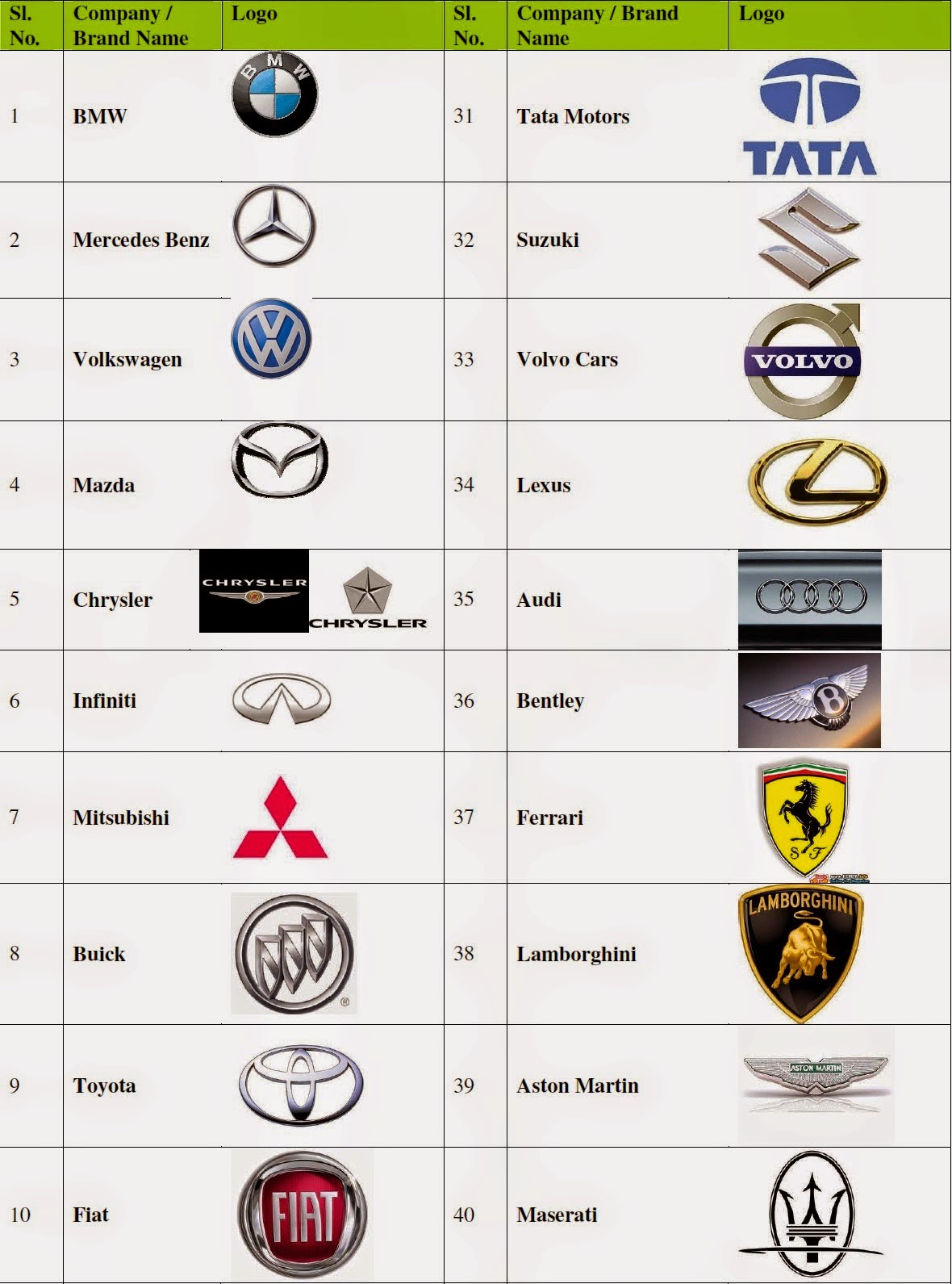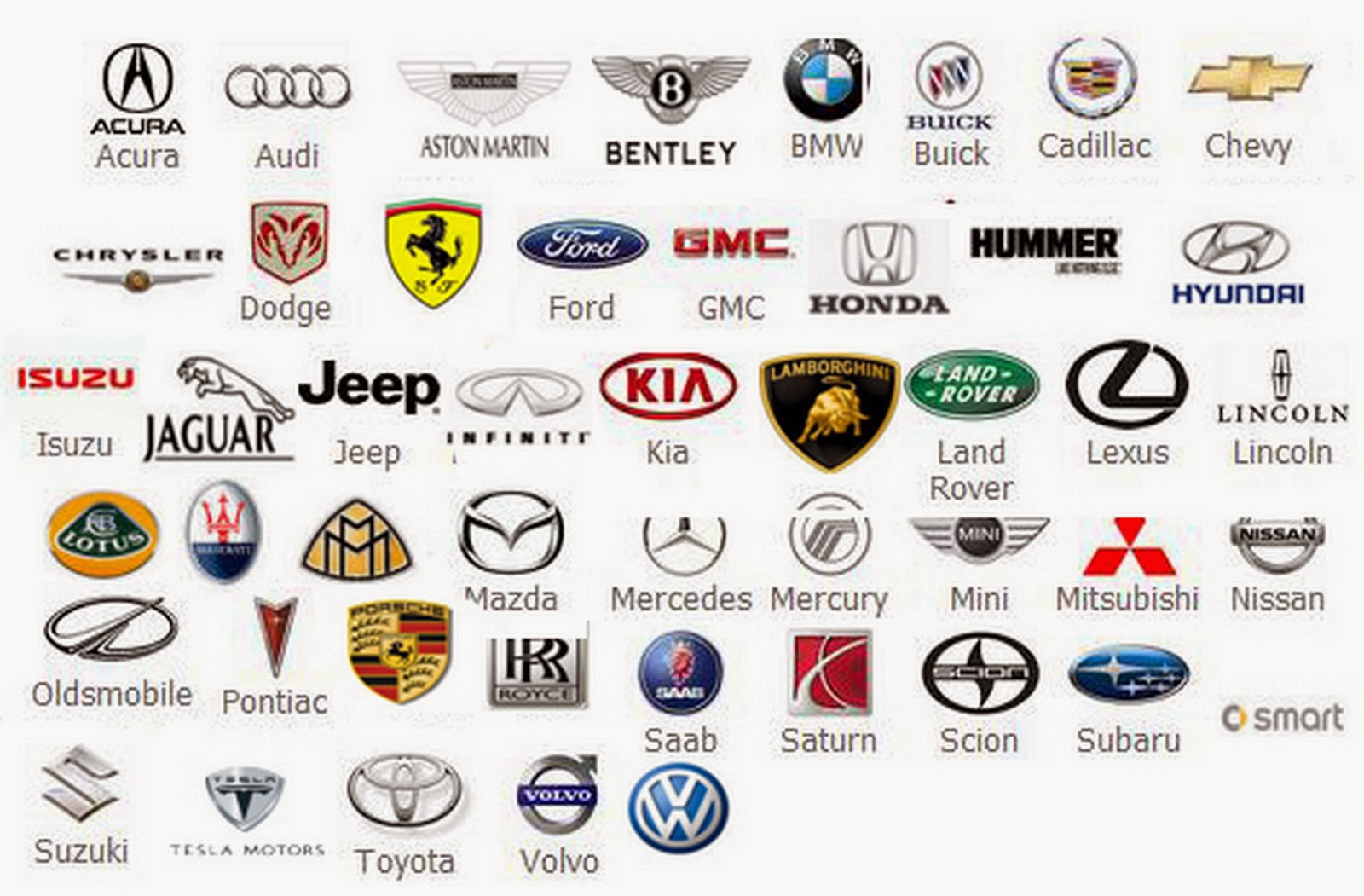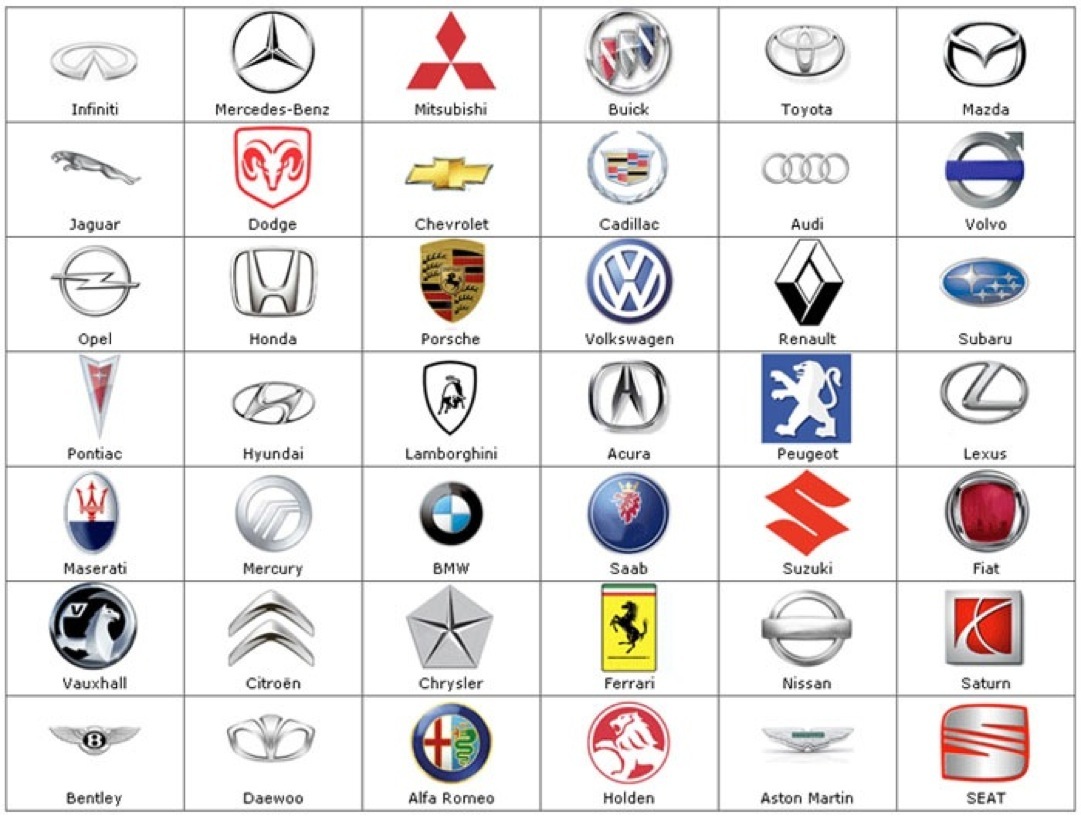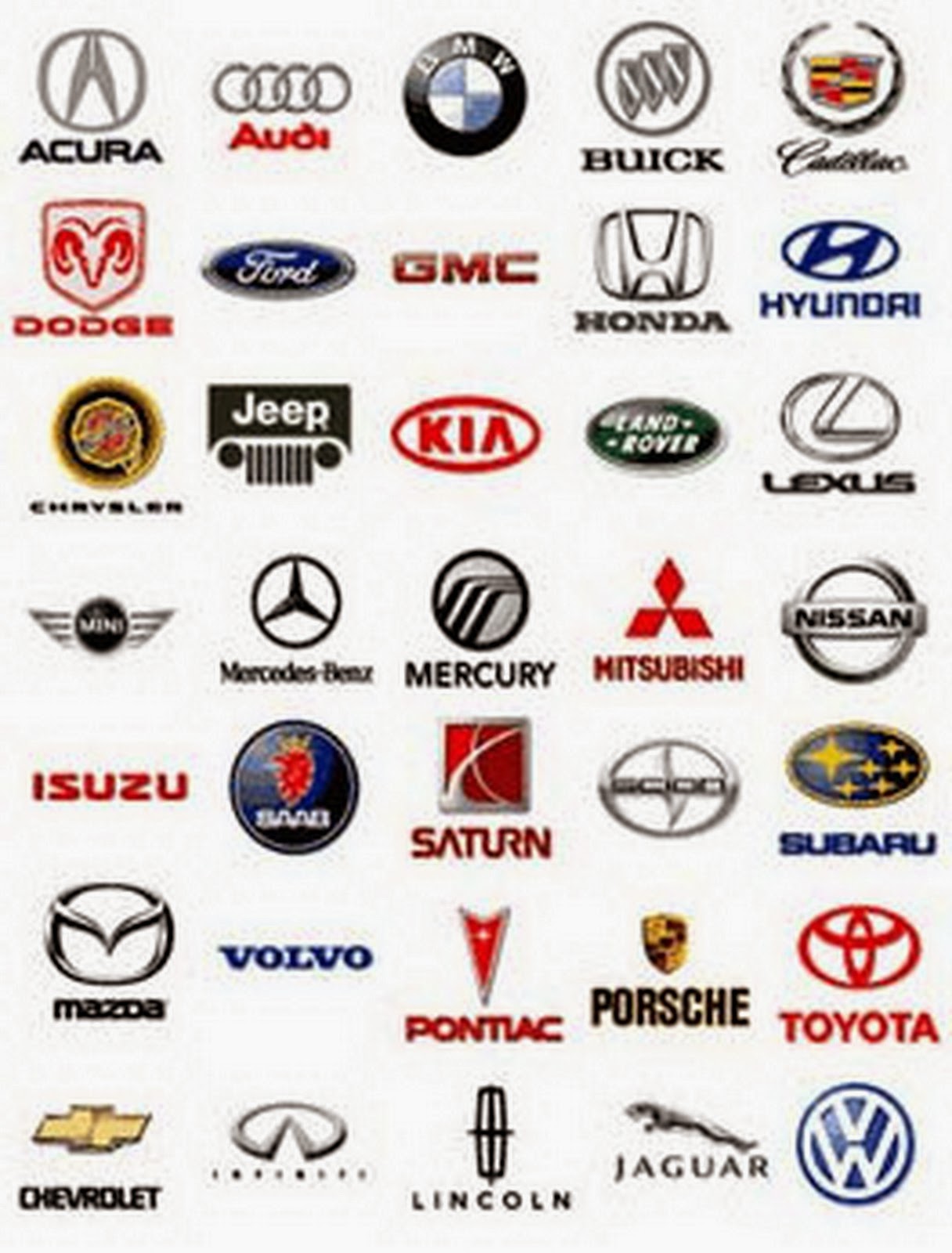The Subtle Poetry of Automotive Emblems

There's a certain unspoken language on the road, a quiet understanding conveyed not through words, but through emblems. The glint of chrome, the sweep of a stylized animal, the bold simplicity of a typeface – these are the visual cues that tell a story, whispering tales of heritage, innovation, and aspiration. We're talking, of course, about car logos and names, those seemingly small details that carry immense weight in the automotive world.
Consider the prancing horse of Ferrari, a symbol of power and performance instantly recognizable across the globe. Or the four interlocking rings of Audi, representing the union of four previously independent car manufacturers. These emblems are more than just decorations; they are powerful symbols of brand identity, embodying the essence of each marque and connecting with drivers on an emotional level. They are a shorthand for the values, history, and aspirations of the automotive brands they represent.
The history of car logos is intertwined with the history of the automobile itself. From the earliest days of motorized carriages, manufacturers sought ways to distinguish their products. These early emblems were often elaborate and ornate, reflecting the craftsmanship and artistry of the era. As the automotive industry evolved, so too did the logos, becoming more streamlined and modern, reflecting changing design aesthetics and marketing strategies. The evolution of automobile branding is a fascinating reflection of the broader cultural and technological shifts of the past century.
The significance of a car's logo and name cannot be overstated. They are the primary means by which consumers identify and differentiate between brands. A well-designed emblem can evoke a sense of prestige, reliability, or innovation, influencing purchasing decisions and shaping brand loyalty. A name, equally important, can convey a sense of heritage, performance, or luxury. Think of the evocative names of models like the Mustang, the Corvette, or the Phantom – each name conjures a distinct image and set of expectations.
One of the key challenges faced by car manufacturers is ensuring that their logos and names remain relevant and appealing in a constantly evolving market. As consumer preferences shift and new technologies emerge, brands must adapt their branding strategies to stay competitive. This can involve subtle updates to existing logos, the introduction of entirely new emblems for sub-brands or electric vehicle lines, and careful consideration of naming conventions for new models. The balance between maintaining heritage and embracing innovation is a delicate one.
The benefits of strong car logos and names are numerous. They create brand recognition, foster customer loyalty, and contribute to a brand's overall perceived value. For example, the Mercedes-Benz three-pointed star is instantly recognizable as a symbol of luxury and engineering excellence. This strong brand identity allows the company to command premium prices and maintain a loyal customer base.
A successful example of automotive branding is the Tesla logo, a stylized "T" that evokes both the company's name and its focus on electric technology. The minimalist design is modern and forward-thinking, perfectly aligning with the brand's image of innovation and sustainability.
Advantages and Disadvantages of Recognizable Car Logos
| Advantages | Disadvantages |
|---|---|
| Brand Recognition | Target for Vandalism (Luxury Brands) |
| Resale Value | Counterfeit Products |
| Brand Loyalty | Limited Design Flexibility |
Best Practices for Designing Car Logos: 1. Keep it simple. 2. Make it memorable. 3. Ensure it's scalable. 4. Consider the target audience. 5. Test it thoroughly.
Real Examples: 1. Ford. 2. Chevrolet. 3. Toyota. 4. BMW. 5. Volkswagen.
FAQs: 1. What is the oldest car logo? 2. What is the most recognizable car logo? 3. How are car logos designed? 4. What is the meaning behind the Ferrari logo? 5. Why do car logos change over time? 6. How do car logos impact brand perception? 7. What are some common themes in car logo design? 8. How are car names chosen?
Tips and Tricks: Research your target audience, consider the history and heritage of your brand, and keep it simple.
In conclusion, the world of car logos and names is far richer and more complex than one might initially assume. These seemingly small details play a crucial role in shaping brand identity, influencing consumer perception, and driving the automotive industry forward. From the iconic prancing horse of Ferrari to the minimalist Tesla "T", these emblems tell a story, whispering tales of innovation, heritage, and aspiration. Understanding the power of these symbols is essential for anyone interested in the automotive world. The enduring power of a well-designed logo and a carefully chosen name can resonate for generations, shaping not just the identity of a brand, but also our collective understanding of the automobiles themselves. By appreciating the subtle poetry of automotive emblems, we gain a deeper appreciation for the artistry and ingenuity that drive this dynamic industry. As we move forward into a future of electric vehicles and autonomous driving, the role of car logos and names will continue to evolve, reflecting the changing landscape of the automotive world. It’s a journey worth following, one emblem at a time.
Unlocking the power of the us womens olympic soccer lineup
Elevating your space with the depth of black benjamin moores darkest hues
Unveiling the secrets of raising villains chapter 57



.jpg)


.jpg)


_resize.jpg)

.jpg)